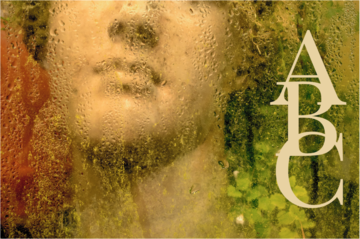Art, Biodiversity, and Climate

This network was funded from 2020 to 2022.
The climate crisis, the collapse of our planet’s biodiversity and growing social inequality are crises that are inherently and inextricably linked. As social awareness of the interdependency of human culture and natural systems grows, new urgency is added to our efforts to extricate ourselves from extractivist habits and mind-sets that have led us to this ecological dead-end. While we have long recognized the need to change the way we think about and relate to our environments, in practice, the shift has proven difficult.
Not only does policy lag behind the science, but our cosmologies, stories and “picturings” of the natural world have struggled to catch up and provide us with alternative ways to perceive and therefore act in the world. This challenge called for a radical collective effort: no one field can claim to hold the solutions to a crisis that is as much cultural and spiritual as it is environmental.
The Art, Biodiversity, and Climate Network (ABC Network) brought together members of the Oxford ONE network, the Biodiversity Network, the Oxford Climate Research Network and The Flute & Bowl: Oxford Art and Science to bridge the gap that separates the Humanities Division (and, more specifically, the arts, music, performance and dance) from the crucial research into conserving our planetary support systems taking place in the MPLS Division. This network engaged creative practitioners and researchers to build a new common imaginarium of the world as-it-could-be, transcending academic disciplinary boundaries and short-term political incentives.
Bringing together a heterogeneous community of practitioners from diverse fields across the divisions (Social science, Humanities and MPLS), the ABC Network facilitated joint-projects, collaborations, and discussions between the arts, sciences and the humanities, that do not only aim to illustrate new research, but to integrate creative methods into the process of knowledge-making itself. The ABC Network was created to develop visionary approaches to protect and advocate for the More-than-Human World.
Convenors:
Alice Hackney
Anya Gleizer
Chris Thorogood
Dr. Cecile Girardin
Dr. Katja Lehmann
Eleanor Holton
Hannah Nazri
Imogen Malpas
JinJoon Lee
Kaya Axelsson
Maya Adams
Tristram Walsh
Art, Biodiversity, and Climate

Indigenous Epistemologies of Place and Locality: intersections with National-state policy in South America (February 2021)
Where do indigenous knowledges sit: wisdom-traditions, keeping and sharing in indigenous communities. (February 2021)
Integration: Possible, ethical or colonial? And what are the alternatives? (March 2021)
Engaging Indigenous Methodologies as Research Methods (March 2021)
Too Eager, Too Fast: Challenges, Problems and Pitfalls arising from the over-hasty adoption of Indigenous Methodologies in Western Research (March 2021)
A talk on the Science & Art of Plants (March 2021)
The ABC Network Artist-Meets-Scientist Fair (March 2012)
Among the Garbage and the Flowers - An Art-Science Exhibition in virtual reality (April 2021)
A series of four workshops were held.
Among the Garbage and the Flowers An Art-Science Exhibition focused around the Theme of Figuring Feasible Futures (June 2021)
Among the Garbage and the Flowers (November 2021)
Workshop 1: De-Constructing Utopias (April 2022)
Workshop 2: Living within Boundaries – Mediated Utopias (May 2022)
Art Show | Boundary Project Oxford (November 2022)


